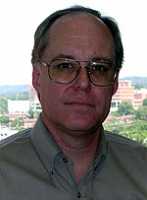
11 Jan New Intestinal Microbiome Changes After Bariatric Surgery
MedicalResearch.com Interview with:
Casey Morrow, Ph.D.
Leader of the research team and professor emeritus
Department of Cell, Developmental and Integrative Biology
University of Alabama at Birmingham
MedicalResearch.com: What is the background for this study?
Response: The human gastrointestinal tract (GIT) contains several distinct physical environments within the stomach, small intestine (duodenum, jejunum, ileum) and colon that harbor complex microbial communities.
Changes in the fecal microbe composition have been described for Roux-en-Y gastric bypass (RYGB), the most effective and durable treatment for morbid obesity, and sleeve gastrectomy (SG).
MedicalResearch.com: What are the main findings?
Response: In a previous study, we used shotgun metagenomic sequencing to develop a bioinformatics program called Window-based SNV Similarity (WSS) analysis that utilizes the unique single nucleotide variants (SNVs) of gut microbes to accurately identify similar microbe strains. Using this analysis, we demonstrated the overall stability of the normal human microbiome by detection of the same microbe strains in fecal samples from the individual taken at different times up to a year apart.
In the current study, we wanted to use the WSS analysis to determine if the microbe strains change in patients who have undergone different surgical disruptions for extreme obesity.
We demonstrate the emergence of new microbe strains in fecal samples pre- and post-surgery, taken at different times from the same individual who had undergone RYGB or SG. Both surgeries disrupt the environment of the upper GIT. In contrast, patients that have undergone sigmoid colon resection (removal of the lower section of the GIT) did not show the emergence of the new microbe strains.
MedicalResearch.com: What should readers take away from your report?
Response: Our study describes, for the first time, the emergence of new microbe strains in the fecal community following alteration of the upper gastrointestinal tract. This result establishes the important contribution of the microbes in the upper GIT to the fecal microbe community.
The clinical outcomes for patients that have undergone RYGB include altered metabolism of certain micronutrients that can necessitate taking supplements. It will be important in future studies to elucidate if these changes are reflected in the gene sequence of the new microbe strains that are involved in metabolism and nutrient utilization. From a practical perspective, our study demonstrates the possibility of using the WSS analysis to track microbe strains post-surgery that can be used to monitor the recovery and status of the patient’s microbiome.
MedicalResearch.com: What recommendations do you have for future research as a result of this work?
Response: There is now a clear realization of the importance of the composition of gut microbiome in normal human homeostasis. The management of an individual’s gut microbe community in both health and disease represents an integral component in 21st century efforts towards improving an individual’s overall health.
Our future studies will examine the impact that other microbiome-disrupting treatments, such as antibiotics and cancer chemotherapy, have on the genetic diversity (composition) of the GI tract microbe community. Ultimately, these studies will form the foundation for patient-specific microbiome management programs that can track individual microbe strains in people, with the possibility of targeted modulation, or even replacement, of specific gut microbe communities designed to improve overall human health.
MedicalResearch.com: Is there anything else you would like to add?
Response: In 2013, UAB responded to the “microbiome revolution” by the establishment of a UAB Microbiome Resource that allowed investigators the opportunity to determine the microbial composition of a diverse array of biological and environmental samples. Since that time, approximately 80 UAB investigators have approximately 50 publications and $18 million in associated grants.
The following are acknowledged for their support of the Microbiome Resource at the University of Alabama at Birmingham: the O’Neal Comprehensive Cancer Center at UAB (P30AR050948), the Center for Clinical and Translational Science (UL1TR001417), the University Wide Institutional Core, the Heflin Center for Genomic Sciences and Microbiome Center.
Citation:
Ranjit Kumar, Jayleen Grams, Daniel I. Chu, David K. Crossman, Richard Stahl, Peter Eipers, Kelly Goldsmith, Michael Crowley, Elliot J. Lefkowitz, Casey D. Morrow. New microbe genomic variants in patients fecal community following surgical disruption of the upper human gastrointestinal tract. Human Microbiome Journal, 2018; 10: 37 DOI: 10.1016/j.humic.2018.10.002
[wysija_form id=”3″]
[last-modified]
The information on MedicalResearch.com is provided for educational purposes only, and is in no way intended to diagnose, cure, or treat any medical or other condition. Always seek the advice of your physician or other qualified health and ask your doctor any questions you may have regarding a medical condition. In addition to all other limitations and disclaimers in this agreement, service provider and its third party providers disclaim any liability or loss in connection with the content provided on this website.
Last Updated on January 11, 2019 by Marie Benz MD FAAD
